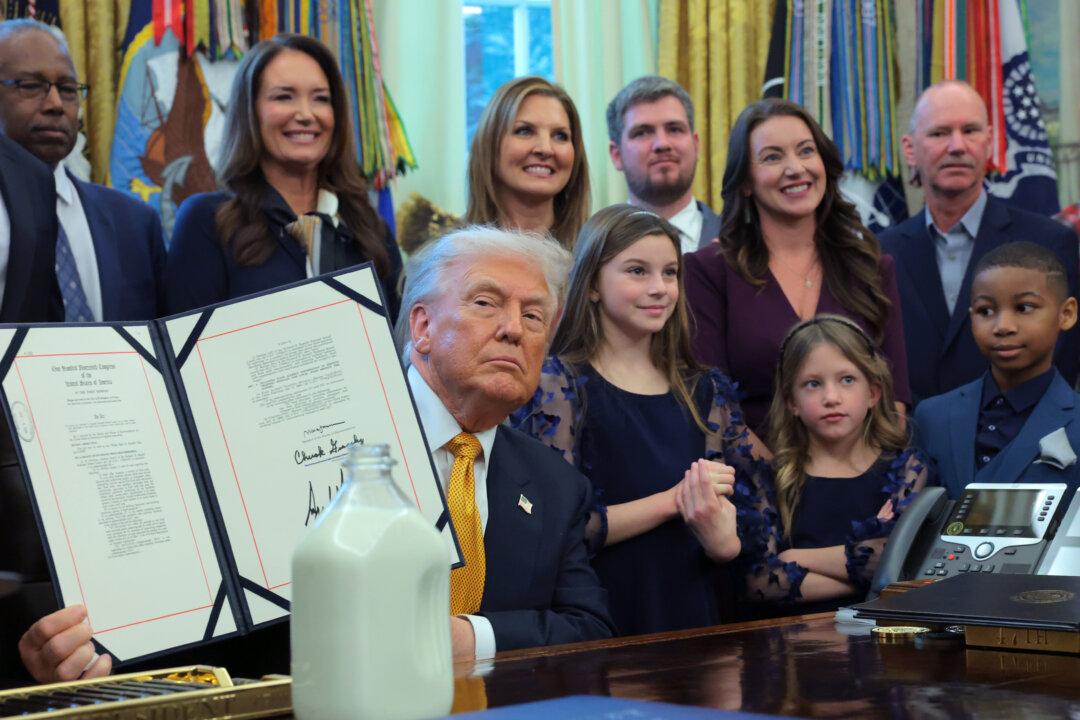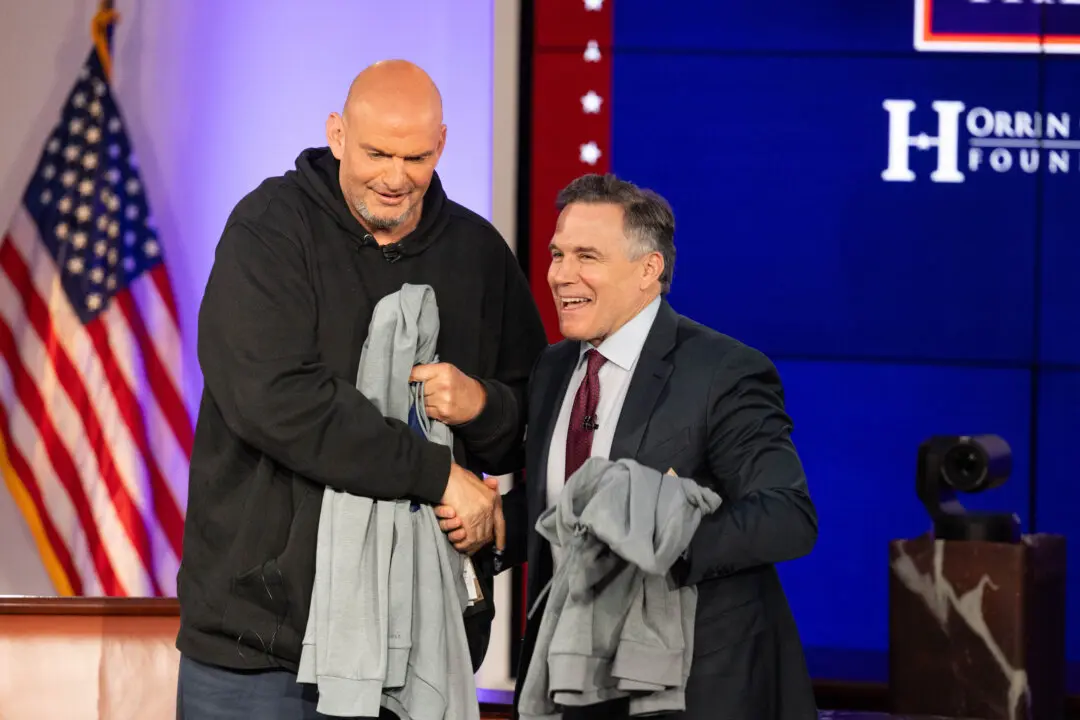Commentary
PITTSBURGH, Pennsylvania—A couple hundred die-hard supporters of John Fetterman’s campaign stood in the pouring rain Saturday morning in a Pittsburgh parking lot, a scene reminiscent of the former President Donald Trump supporters who stood in the rain for his rally in Greensburg in May. They were all waiting to hear him spell out the reasons why he should be the next senator from Pennsylvania.





